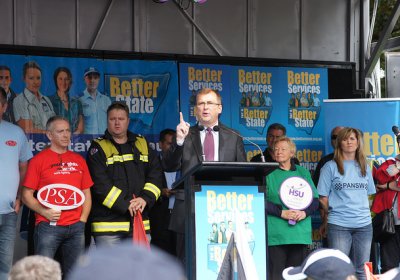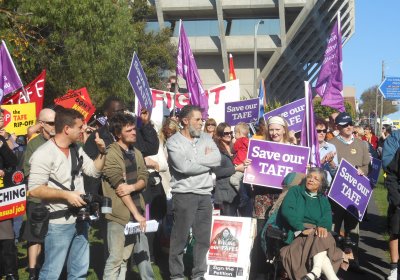Analysis
Who really runs this country? The announcement by the federal government that it has struck its first Enterprise Migration Agreement with the world's richest woman Gina Rinehart reveals just how eager our governments are to serve the mining millionaires.
The 2012 Resistance conference, in Adelaide July 20-22, will feature international guests including from CLASSE in Quebec (the largest and most radical student organisation leading massive student strikes); the Socialist Party of Malaysia (hugely involved in the Bersih democracy uprising); and from the brave Palestinian People's Party.
Training for young people and permanent residency for migrant workers: Not the 457 visa rip off!
Socialist Alliance statement May 29, 2012
The announcement by Immigration Minister Chris Bowen on May 25 that the Gillard Labor government has struck its first Enterprise Migration Agreement with mining billionaire Gina Rinehart reveals just how eager this government is to serve the mining millionaires.
- Previous page
- Page 420
- Next page











